Solve many practical problems
Discussing at Group 11 including the National Assembly delegations of Can Tho city and Dien Bien province this afternoon, November 11, National Assembly deputies agreed to comprehensively amend the Law on Drug Prevention and Control to ensure harmony between strict and timely handling of illegal drug use and the right to study, creating opportunities for illegal drug users and drug addicts who are children, pupils, and students to reintegrate into the community...
.jpg)
Along with that, the amendment of the Law will improve the effectiveness of drug addiction treatment and post-rehabilitation management; perfect the inter-sectoral coordination mechanism, clarify the responsibilities of agencies in drug prevention, control and control; mobilize resources for drug prevention and control; build a mechanism to promote the role of organizations, individuals, families and communities in monitoring and post-rehabilitation support.
National Assembly Deputy Le Minh Nam (Can Tho) assessed that the draft Law submitted to the National Assembly this time has resolved many practical issues arising today. In particular, it is consistent with the task of state management of drug addiction treatment and post-treatment management being transferred to the Ministry of Public Security , removing difficulties and obstacles in applying the current Law.

According to delegate Le Minh Nam, "the transfer of state management functions and tasks on drug addiction treatment and post-treatment management to the police force for implementation in conjunction with criminal review and handling, especially with the addition of provisions on criminal handling of drug use in the Penal Code No. 86 that we just passed at the Ninth Session, will also help drug prevention and control work to be more effective and active."
Need to add electronic monitoring measures
The draft Law amends the provisions on voluntary drug addiction treatment at home and in the community and voluntary drug addiction treatment at home and in the community after drug addiction treatment at private drug addiction treatment facilities. Considering this a major practical requirement, National Assembly Deputy Le Thi Thanh Lam (Can Tho) proposed adding specific regulations on the application of technology and digital data in the management of drug addicts and the control of new synthetic drugs; adding regulations on the responsibility of management agencies for implementing policies to strengthen communication and education on drug prevention and control in schools and communities to raise awareness of self-prevention in society.

The practice of managing and supervising people undergoing voluntary drug rehabilitation at home and in the community, treating addiction to opioids with replacement drugs, and managing people after drug rehabilitation is currently facing many difficulties. Many subjects do not comply with drug rehabilitation regulations, violate the law without being prosecuted, but there are no appropriate mechanisms and sanctions to ensure the necessary deterrence, leading to low effectiveness in managing voluntary drug rehabilitation at home and in the community, and managing people after drug rehabilitation.

Through studying the experiences of several countries, delegate Le Thi Thanh Lam also proposed to study and supplement the provisions in the draft Law on electronic monitoring measures. The authority to apply can be assigned to the Director of Provincial Police or the Chief of Commune Police and the subjects of application include: drug addicts in the family, community, people treated for addiction to opioids with replacement drugs and people under post-drug rehabilitation management. The Government should be assigned to provide detailed regulations in the direction of: based on economic and social conditions to decide when to organize the implementation of this measure.
Decentralize more and clearer authority to commune-level police in determining drug addiction status
National Assembly Deputy Le Minh Nam (Can Tho) also said that through meetings with local voters, many voters suggested strengthening measures to prevent and combat drugs and increasing sanctions to ensure education and deterrence.
Delegates agreed to add the content of managing illegal drug users and the responsibilities of individuals and families in Clause 3, Article 6 to ensure consistency with the provisions in Article 25 on the responsibilities of families, agencies, organizations, and communities in managing illegal drug users. However, the draft Law adds the responsibilities of the Vietnam Fatherland Front and its member organizations in managing illegal drug users. Delegate Le Minh Nam suggested that this provision should be more specific, in what scope and specifically how to manage it, to facilitate these agencies in implementing it in practice.
Also concerned about the regulations on the responsibilities of the Vietnam Fatherland Front, its member organizations, and other organizations in Article 10, National Assembly Delegate Trieu Thi Ngoc Diem (Can Tho) proposed to study and add the function of social supervision and criticism in the implementation of policies and laws on drug prevention and control and activities related to state management of drugs in the area and to synthesize proposals, reflect recommendations of the people or coordinate to build a model of self-governing communities towards drug-free communes and wards.

Delegate Trieu Thi Ngoc Diem also suggested that the determination of drug addiction status should be in the direction of clearer and more decentralization to the commune-level police to increase authority and increase local initiative. Strengthen human resource arrangement and allow commune health stations to be qualified to determine addiction status from establishing procedural records under the guidance of standards, diagnosis and professional processes to determine drug addiction status of the higher-level health sector.
Delegates also suggested that it is necessary to soon complete the national database on drug addicts and drug criminals, and the mechanism for integrating and sharing data information on platforms between sectors to ensure current digital transformation requirements, especially information on state management of drugs, management of drug addicts, information on addicts... There must be more specific regulations on coordination responsibilities between functional forces to avoid omissions or duplication of tasks.
"In particular, it is necessary to conduct further research on the community drug rehabilitation model, with appropriate criteria. Currently, there are 333 points nationwide providing voluntary drug rehabilitation services at home and in the community in 15 provinces and cities. Public drug rehabilitation facilities are overloaded and have temporarily stopped accepting voluntary drug rehabilitation. Therefore, the community drug rehabilitation model is really necessary in the current period," emphasized delegate Trieu Thi Ngoc Diem.
Source: https://daibieunhandan.vn/du-an-luat-phong-chong-ma-tuy-sua-doi-can-n-ghien-cuu-quy-dinh-tieu-chi-mo-hinh-cai-nghien-tu-nguyen-tai-cong-dong-10395260.html







![[Photo] Prime Minister Pham Minh Chinh receives Lao Minister of Labor and Welfare Phosay Sayasone](https://vphoto.vietnam.vn/thumb/1200x675/vietnam/resource/IMAGE/2025/11/11/1762872028311_dsc-2246-jpg.webp)
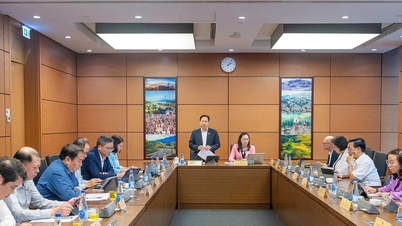
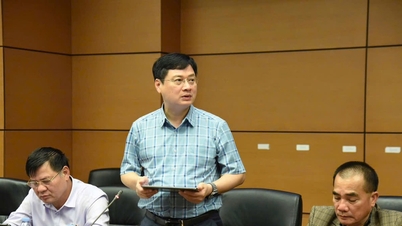
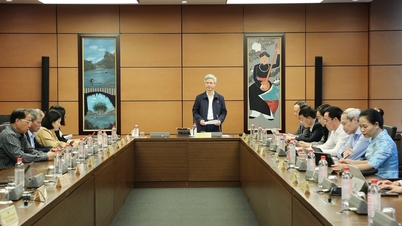



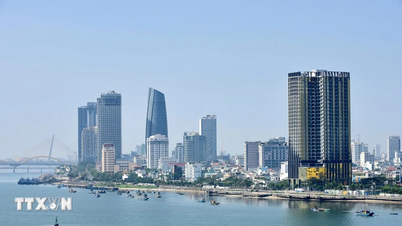

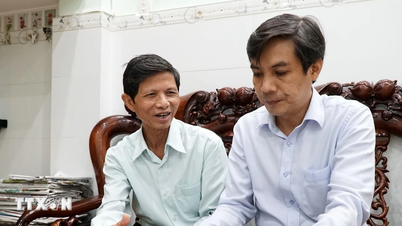




![[Video] Draft documents of the 14th National Congress emphasize the key role of foreign affairs](https://vphoto.vietnam.vn/thumb/402x226/vietnam/resource/IMAGE/2025/11/12/1762905940110_dung00-24-48-14still009-jpg.webp)








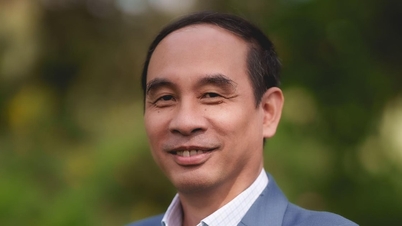


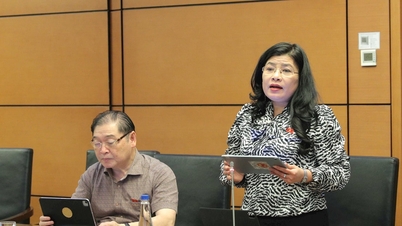





















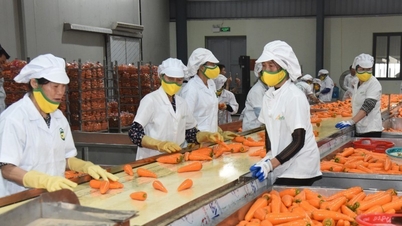




























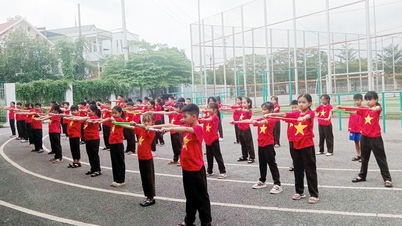


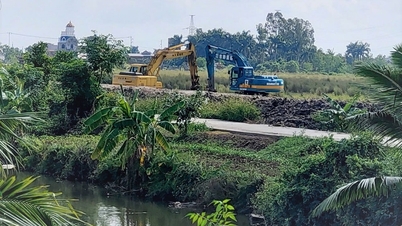

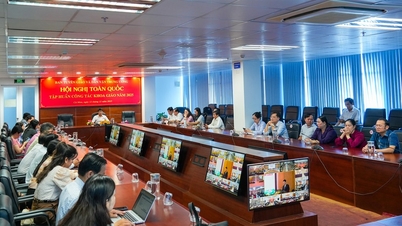


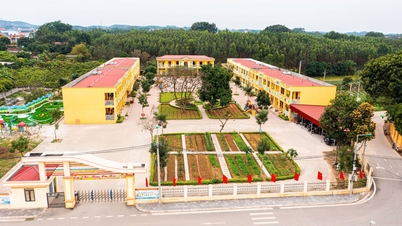






![Dong Nai OCOP transition: [Article 3] Linking tourism with OCOP product consumption](https://vphoto.vietnam.vn/thumb/402x226/vietnam/resource/IMAGE/2025/11/10/1762739199309_1324-2740-7_n-162543_981.jpeg)








Comment (0)